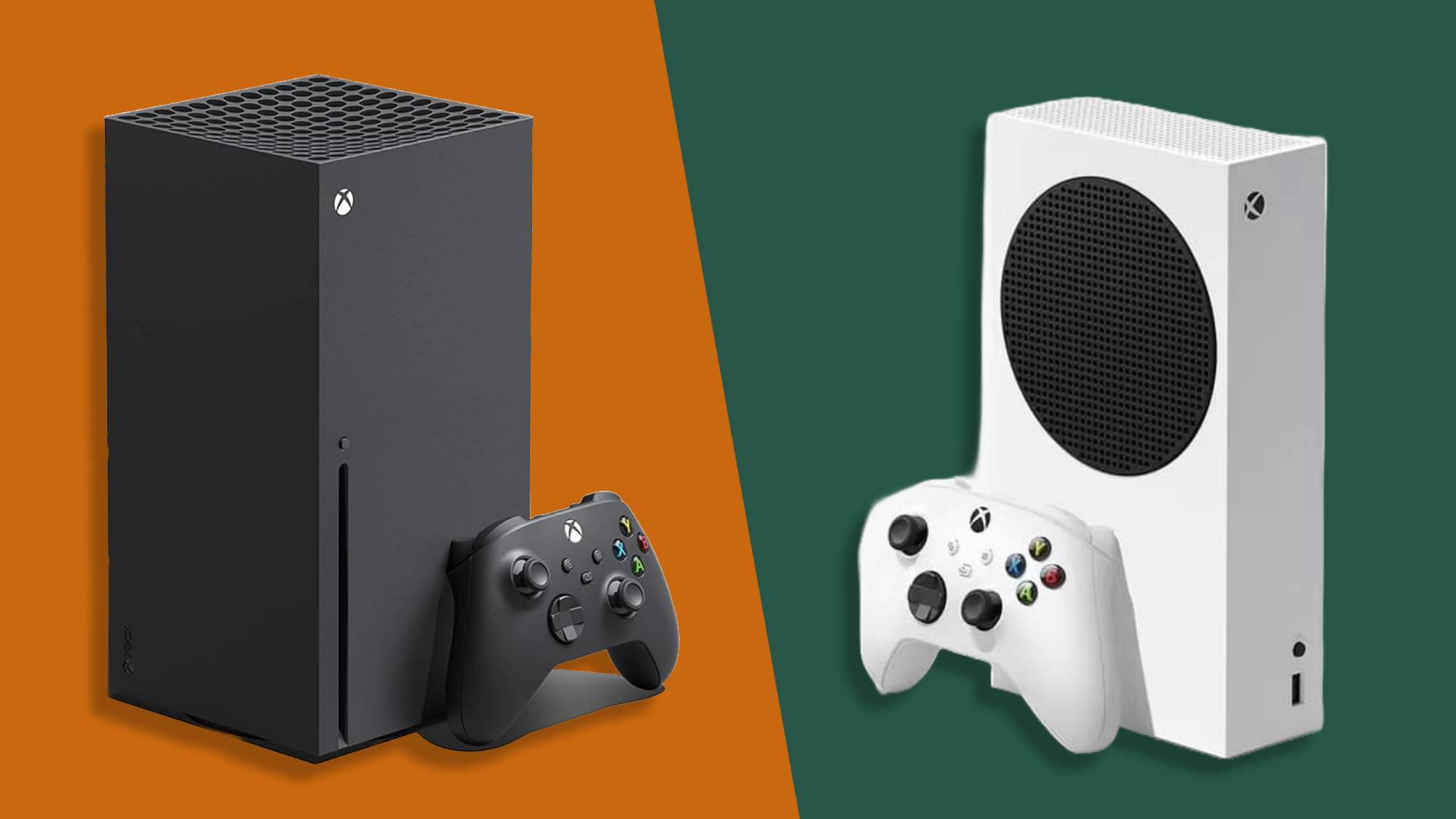
The Xbox Series X is a powerful, super-fast machine that supports up to 4K/120Hz and boasts 1TB of storage. While the Xbox Series X isn't the most expensive console on the market, it's pricier than the all-digital edition. The specs for both consoles are pretty much the same, the only difference is that this console has a disc drive to play Blu-Rays and physical games.
Pros
- SSD grants super-fast load times
- Dolby Vision and Atmos support
- Supports up to 4K/120Hz
- Best-in-class backward compatibility
Cons
- Exclusives lacking without Game Pass
- Minimal UI improvements
The Xbox Series X Digital Edition is just as powerful as the original but doesn't feature a disc drive. This means this is an all-digital console, so you can only download and play digital games. Fortunately, the lack of a disc drive means this console costs less than the original, but whether it's for you depends on whether you enjoy having a physical library or regularly watch Blu-Rays.
Pros
- Full fat Xbox Series X power for less
- Robot White colorway is aesthetically pleasing
- Unintrusive, whisper-quiet performance
- A great option for Xbox Game Pass
Cons
- Only 800GB of usable storage
- The 1TB Xbox Series S is arguably better value
- Still priced quite highly despite the lack of a disc drive
Microsoft's Xbox Series X is a powerful console boasting super-fast load times, 4K support at up to 120Hz, and multi-media features like Dolby Atmos and DTS support. But what if you could have all that at a lower price tag? The Xbox Series X Digital Edition offers just that, with the only key difference being that it lacks a disc drive for playing physical games and Blu-rays.
If you're trying to decide whether to pick up the Xbox Series X or its all-digital alternative, we're here to help. Below, we've broken down all the key differences and similarities between Microsoft's flagship consoles to help you decide which is best for you.
However, if you're looking for an even more affordable - but less powerful - alternative, it's worth considering the Xbox Series S. You can also check out our pick of the best gaming consoles for a more thorough list of alternatives.
Xbox Series X vs Xbox Series X Digital Edition: price and value
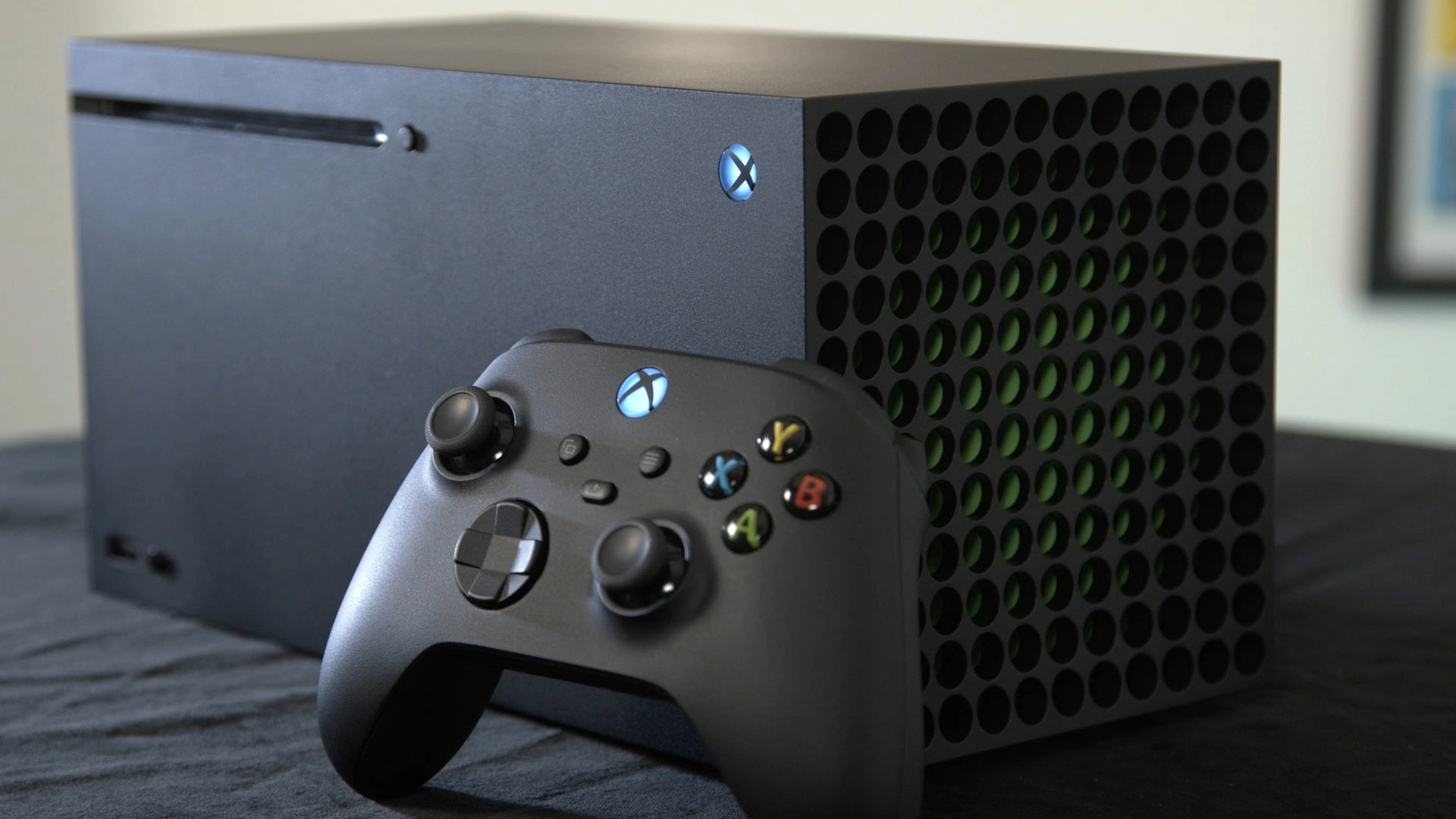
The Xbox Series X Digital Edition's price tag is probably its most enticing factor. The lack of a disc drive means the all-digital edition costs $449.99 / £429.99 / AU$699, while the standard Xbox Series X is $50 more at $499 / £479 / AU$749.
By comparison, the PS5 (and newer PS5 Slim) costs $499.99 / £479.99 / AU$799.95, while Sony's PS5 Digital Edition costs $399.99 / £389.99 / AU$649.95.
The Xbox Series X is the same price as the competition and is, frankly, pretty good value for money, considering how powerful it is. The Xbox Series X Digital Edition has the same specs, so being able to pick it up for $50 cheaper is even better value for money - as long as you're not precious about physical media. However, the PS5 Digital Edition does come in $50 less than that again - so if budget is a factor in your purchase, it's worth considering it or the Xbox Series S. We weigh up the two in our PS5 Digital Edition vs Xbox Series S guide.
We do see discounts on Xbox Series X bundles during sales periods, though, so keep an eye on our best Xbox deals page for the latest discounts.
Sign up for breaking news, reviews, opinion, top tech deals, and more.
Xbox Series X vs Xbox Series X Digital Edition: specs
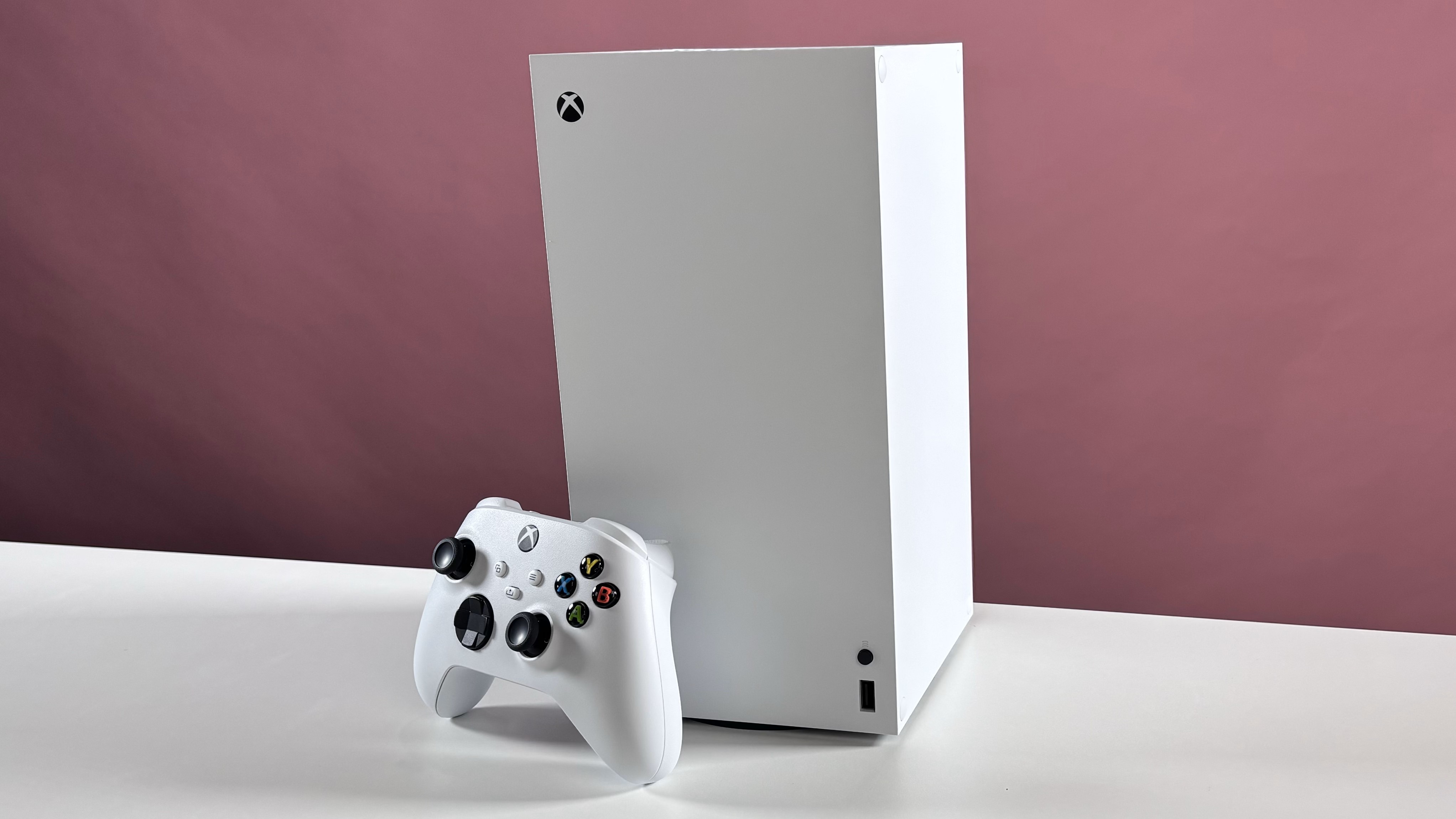
Here is the full list of specs for the Xbox Series X and the Xbox Series X Digital Edition. You'll notice they're pretty much identical, except for the Xbox Series X Digital Edition's lack of disc drive and more affordable price tag.
| Row 0 - Cell 0 | Xbox Series X | Xbox Series X Digital Edition |
| Price | $499 / £479 / AU$749 | $449.99 / £429.99 / AU$699 |
| Dimensions | 5.9in x 5.9in x 11.9in / 15.1cm x 15.1cm x 30.1cm | 5.9in x 5.9in x 11.9in / 15.1cm x 15.1cm x 30.1cm |
| Weight | 9.8lbs (4.5kg) | 9.8lbs (4.5kg) |
| Capacity | 1TB SSD (800GB of usable storage) | 1TB SSD (800GB of usable storage) |
| Connectivity | WiFi 6, ethernet | WiFi 6, ethernet |
| CPU | 8X Cores @ 3.8 GHz (3.6 GHz w/SMT) Custom Zen 2 CPU | 8X Cores @ 3.8 GHz (3.6 GHz w/SMT) Custom Zen 2 CPU |
| GPU | 12 TFLOPS, 52 CUs @1.825 GHz Custom RDNA 2 GPU | 12 TFLOPS, 52 CUs @1.825 GHz Custom RDNA 2 GPU |
| RAM | 16GB GDDR6 | 16GB GDDR6 |
| Memory bandwitch | 10 GB at 560 GB/s, 6 GB at 336 GB/s | 10 GB at 560 GB/s, 6 GB at 336 GB/s |
| Ports | 3 x USB-A, 1 x HDMI, 1 x power, 1 x ethernet, 1 x storage expansion | 3 x USB-A, 1 x HDMI, 1 x power, 1 x ethernet, 1 x storage expansion |
| Disc drive | Yes, 4K UHD Blu-Ray drive | No |
| Features | Smart Delivery, Quick Resume, Dolby Atmos, Dolby Vision, and DTS support | Smart Delivery, Quick Resume, Dolby Atmos, Dolby Vision, and DTS support |
| External storage | Seagate or Western Digital PCIe 4.0 Storage Expansion Card slot; external storage via USB 3.0 | Seagate or Western Digital PCIe 4.0 Storage Expansion Card slot; external storage via USB 3.0 |
Xbox Series X vs Xbox Series X Digital Edition: design and features
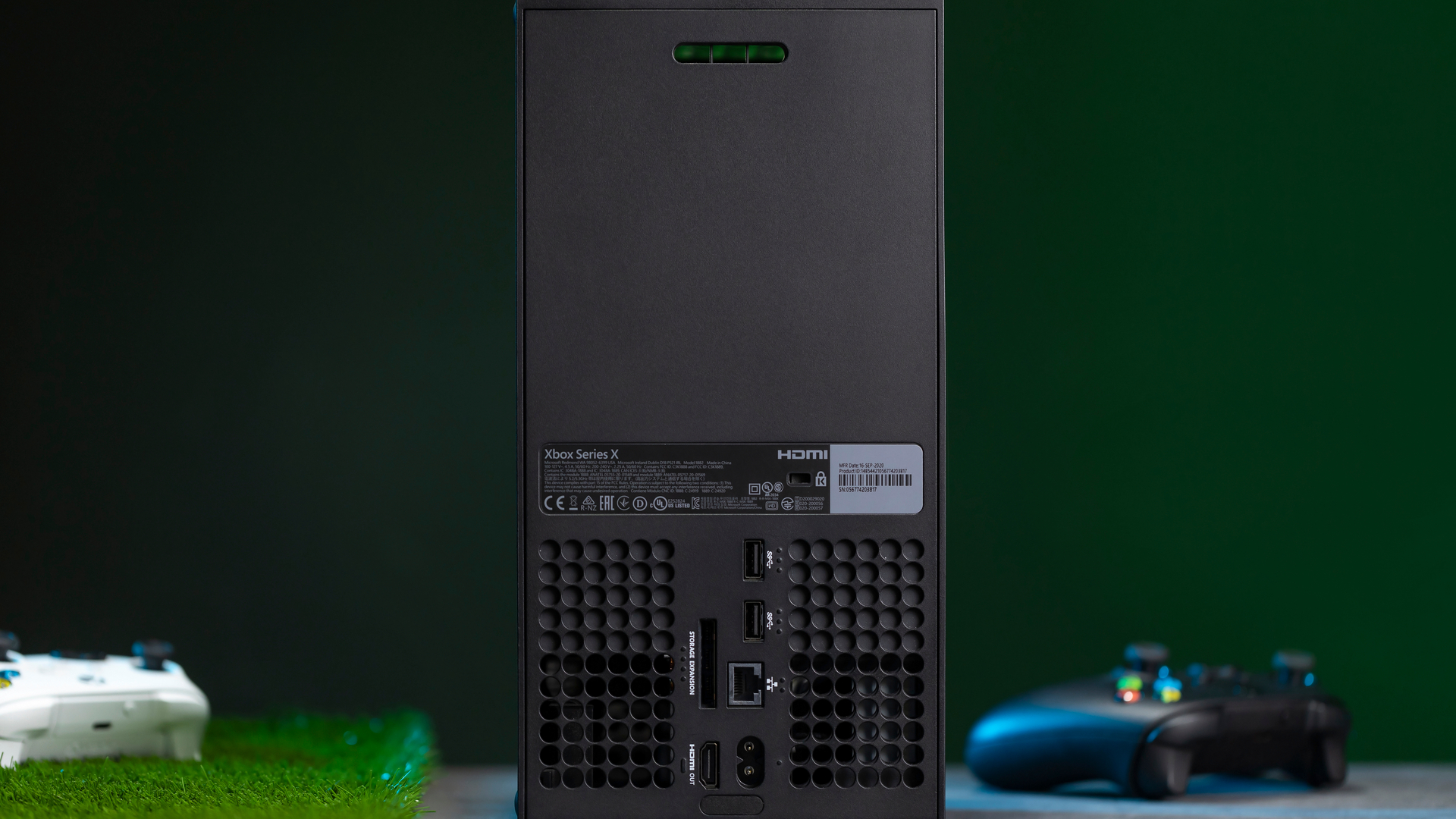
Despite the removal of the disc drive, the Xbox Series X and the Xbox Series X Digital Edition are the same size and have the same overall design - except the Digital Edition is matte white instead of the Series X's matte black. If you want something a bit different, however, there is a Galaxy Black 2TB Xbox Series X available (though stock is relatively limited), which is black with starry green and silver speckles over it.
The Xbox Series X and its all-digital alternative are both pretty chunky and heavy to boot, measuring 5.9in x 5.9in x 11.9in and weighing 4.5kg. So, you may have a little trouble finding them a home. In addition, they have the same ports: three USB-A, an HDMI, a power port, an ethernet, and a storage expansion slot.
The biggest design difference, as we've mentioned, is that lack of a disc drive. The Xbox Series X has a 4K UHD Blu-Ray drive, which allows you to play physical games (including older, backward-compatible Xbox titles) and Blu-rays. This means the all-digital console has no disc drive slot, but doesn't really make the Xbox look much different.
The differences end there, however. Both consoles have the same Xbox Series X features, including Smart Delivery (which ensures you play the best version of a game, no matter the generation), Quick Resume (which allows you to turn off your Xbox while playing a game and then jump back in where you left off), support for Dolby Atmos and DTS (though you need to buy these subscriptions separately), and support for Dolby Vision. The Xbox Series X consoles also support backward compatibility for select titles from the Xbox, Xbox 360, and Xbox One - with Smart Delivery helping them run even smoother.
Xbox Series X vs Xbox Series X Digital Edition: performance
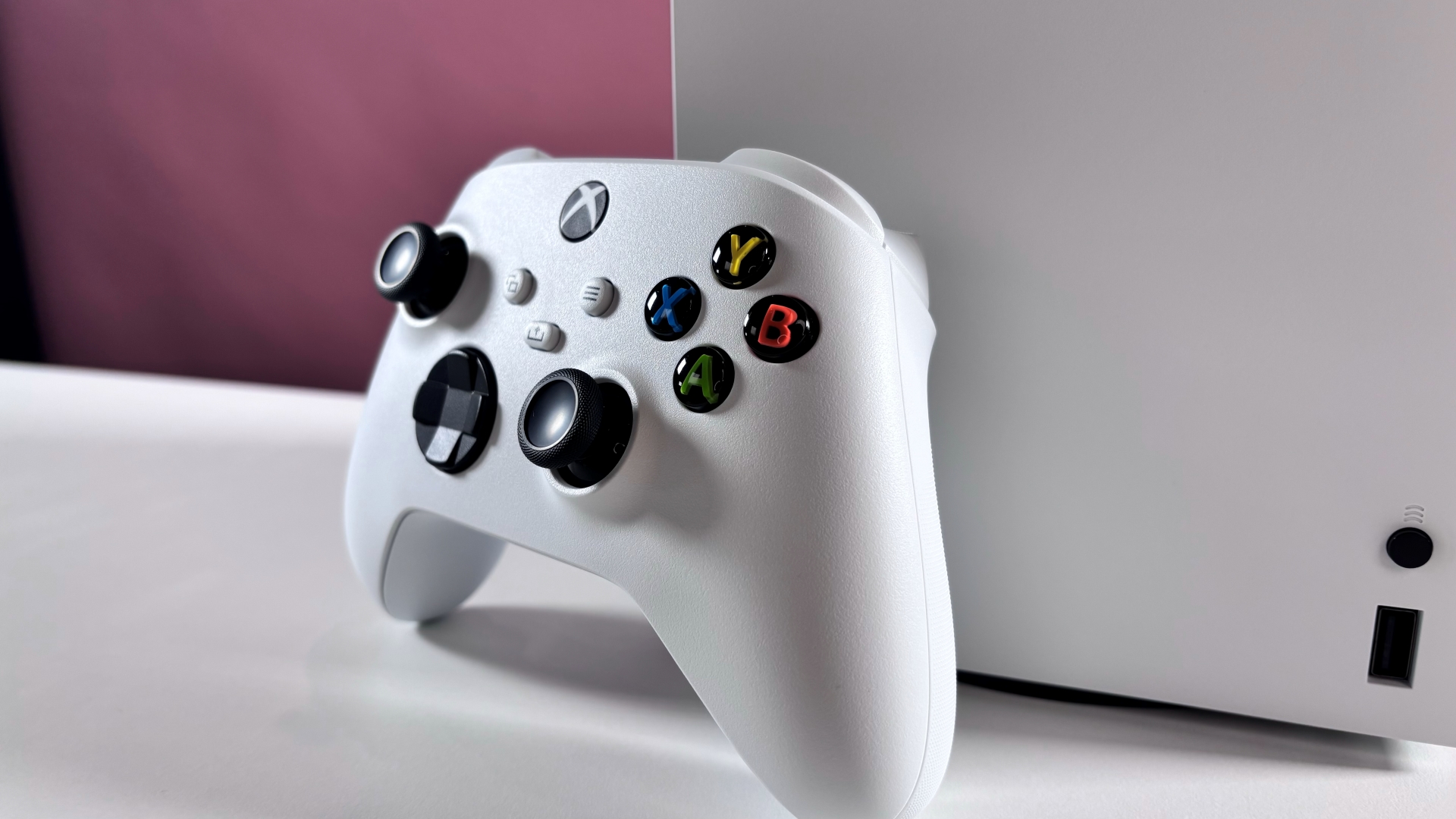
Again, the two consoles boast the same powerhouse performance due to the technical specs being the same. The Xbox Series X Digital Edition provides the same full-fat experience as the original, including support for 4K and framerates up to 120fps on supported TVs.
Games run buttery smooth on the Xbox Series X consoles, particularly Xbox Series X|S enhanced titles, and fidelity is impressive overall. Hitting that 4K at 120fps can be tricky, though, with 4K having a noticeable impact on frame rate. In fact, most 4K 'Quality' modes for Xbox Series X games will drop the framerate to 30fps to ensure performance is reserved for sharper image quality.
Many Xbox Series X titles offer a Performance mode that allows you to hit a higher, more stable frame rate, but the trade-off there is lower image quality. Something which isn't a problem for the new PS5 Pro. With 'Performance' graphics settings, you can more reasonably expect 60-120fps, albeit with a resolution knock to around that 1080p mark.
Both consoles come with 1TB of storage, but only 800GB of this storage space is usable. Considering many AAA games come in over 100GB nowadays, that space can get eaten up pretty quickly, and you're likely to notice it even more with the Digital Edition, which relies on digital downloads.
Fortunately, you can easily expand the storage of both consoles by buying a Seagate Expansion Card (or other compatible card), which simply slots in the designed port at the back of the console. These cards don't come cheap, though, with the 512Gb option costing $109.99 / £109.99 / AU$129.99, the 1TB costing $149.99 / £179.99 / AU$339, and the 2TB costing a whopping $279.99 / £339.99 / AU$599. If you can, I advise getting the 1TB, especially if you're an Xbox Game Pass subscriber and plan to download lots of games. We frequently see these cards discounted, so keep an eye out during sales periods.
Unlike some consoles, the Xbox Series X consoles run very quietly, even when you're playing demanding titles. It's important, though, to ensure it's got plenty of space around it in your home, with its perforated top unobstructed.
Xbox Series X vs Xbox Series X Digital Edition: verdict
Ultimately, you should ask yourself one main question when choosing between an Xbox Series X and an Xbox Series X Digital Edition: do you need a disc drive? If you never play physical games or Blu-rays, the answer is probably no, and the Xbox Series X Digital Edition is the better option. If you have a collection of physical Xbox games spanning generations that you want to keep playing, or you love picking up physical editions, you should probably stick with the Xbox Series X.
Whichever you decide to go for, I highly recommend picking up an Xbox Game Pass subscription to make the most of your console. This subscription gives you access to hundreds of games off the bat, while Xbox Game Pass Ultimate ensures access to day-one Xbox exclusives and EA Play titles.
An award-winning games journalist, with seven years of experience in games journalism and a degree in journalism from City University, London, Vic brings experience from IGN, Eurogamer, The Telegraph, VG247, Dot Esports and more to the TechRadar table. You may have even heard her on the radio or speaking on a panel, as she’s previously appeared on BBC Radio 4, BBC Radio 5, BBC Radio Ulster and more. Not only is Vic passionate about games, but she's appeared on both panels and podcasts to discuss mental health awareness. Make sure to follow her on Twitter for more.